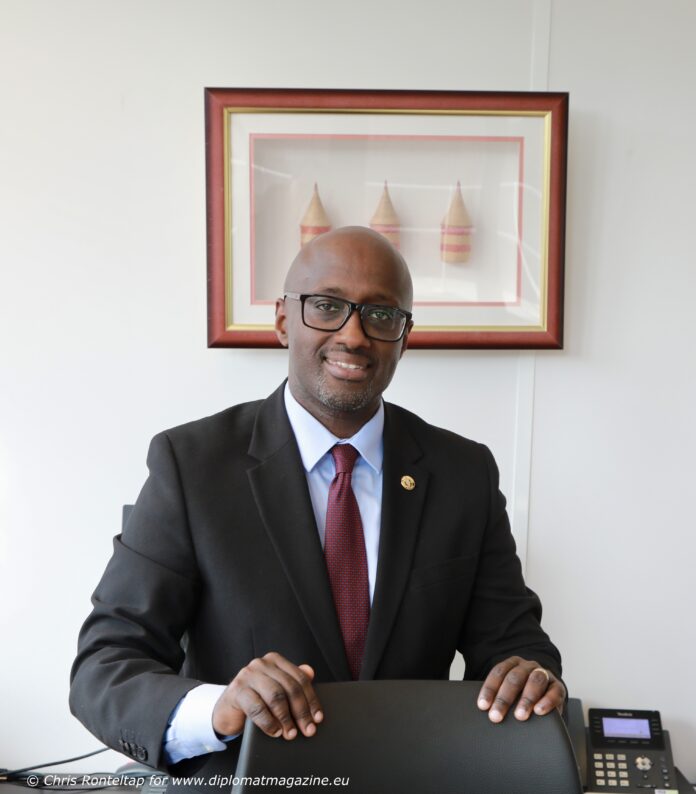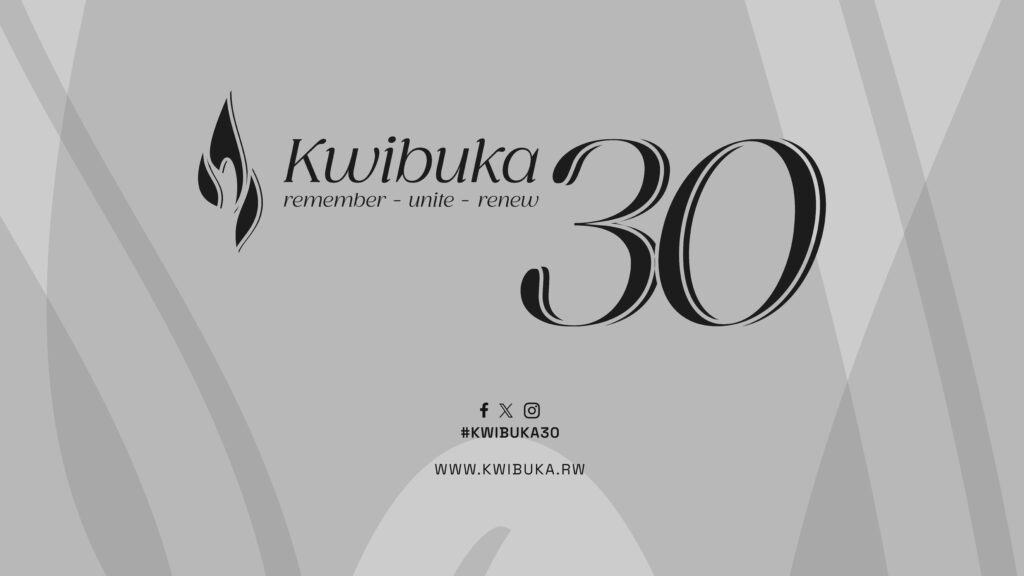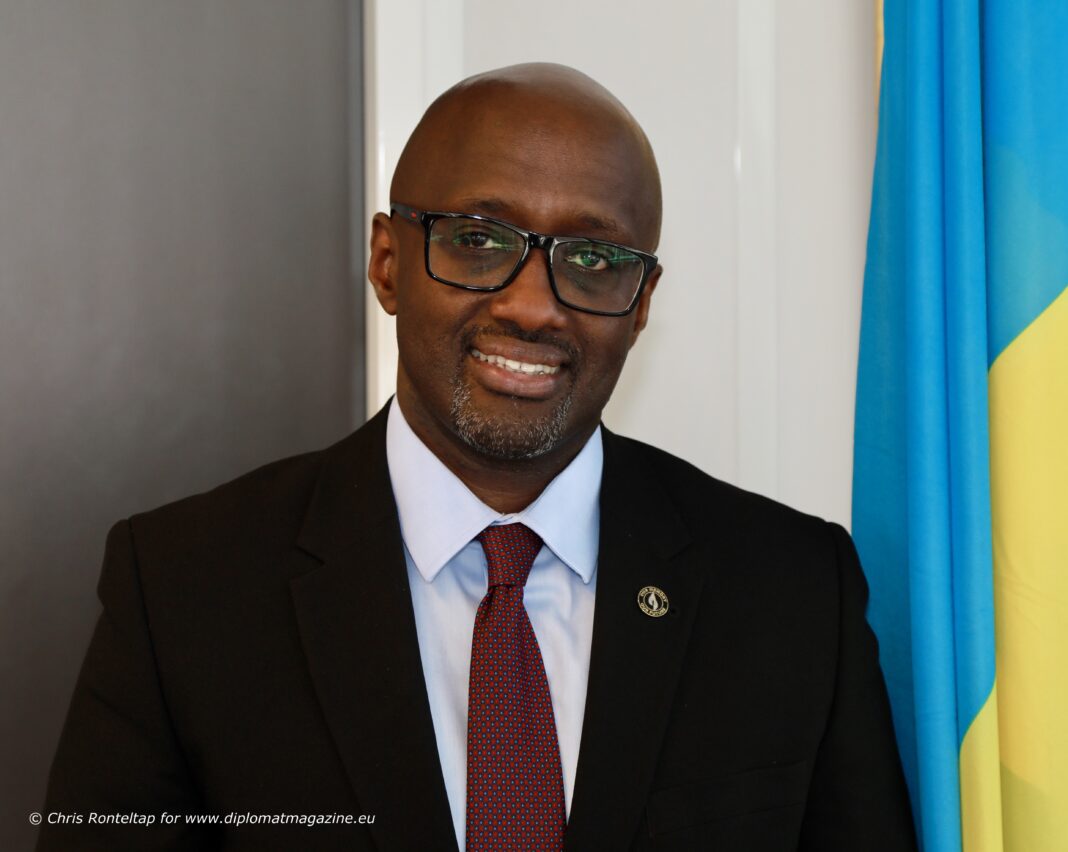Kwibuka 30
On the 7th of April 2024, Rwanda commemorated, for the 30th time, the Genocide perpetrated against the Tutsi “Kwibuka30” (meaning to remember). The 1994 genocide perpetrated against the Tutsi was devastating. One million killed in a hundred days from a population of 7.5 million; the economy was destroyed and infrastructures were in shambles. Unlike the Holocaust, the genocide against the Tutsi was not committed by the military or paramilitary apparatus only, it was mainly committed by civilians, neighbours, friends and even family members, killing all Tutsi, from the baby in the cradle to the sicks and bedridden old people. For many observers, the country was gone forever and could not recover.
Failure of the international community
The responsibility of the international community was well established by historians. Some countries supported the genocidal government in 1994, others chose to look the other way and even some, especially permanent members of the UN Security Council, refused to act in the face of evil. The Department of Peacekeeping Operations of the United Nations is also to blame, as it rejected multiple alarms, before the genocide, by the UN Force commander on the ground.
However, the UN and most of those countries acknowledged their responsibility and presented their apologies to the Rwandan people. For our part, we chose to move on and establish good relations with those countries, based on the established historical facts, for the interest of our respective peoples.
Rebuilding a nation
However, the Government of National Unity, led by the RPF-Inkotanyi that stopped the genocide on 4th July 1994 put in place many reforms that led to significant achievements over the past thirty years, mainly an unexpected unity and reconciliation and an ambitious socio-economic transformation.
Under the visionary leadership of H.E. Paul Kagame, President of the Republic of Rwanda, the government and the people of Rwanda carried out reforms in four critical sectors:
Unity and reconciliation
“Rwandan chose to stay united”, as proclaimed by President Kagame. The priority after the genocide was justice for the victims. However, this turned out to be a daunting task, given the huge number of victims and perpetrators, not to mention the millions of refugees, who included judges, lawyers, prosecutors and court clerks. In this context, the Government didn’t want punitive justice and opted for restorative justice, to achieve reconciliation.
This is why we put in place the traditional justice system “Gacaca”, which put forward light sentences, community works and forgiveness in exchange of truth and confession by the perpetrators. The Gacaca jurisdictions, which were in force since 2001 to 2012, turned out to be successful with more than two million adjudications.
Socio-economic transformation
After the genocide, Rwanda chose to do more than simple recovery and reconstruction. The government decided to embark in an unprecedented, ambitious and pragmatic journey for transformation. With many reforms carried out, Rwanda became, in most international rankings and economic publications, a reference point for socio-economic transformation and good governance, being regularly ranked in the top three countries in Africa.
Rwanda has now moved from Vision 2020 to Vision 2050. In 2000, the government adopted Vision 2020, which is an economic blueprint with targeted goals for the year 2020. This was a rapid economic growth to achieve middle income status ($1,240 GDP per capita) and increased poverty reduction (poverty reduced to 20%, extreme poverty eliminated). In this regard, GDP per capita increased from $220 in 2000 to over $1,000 in 2023, and Rwanda was the sixth fastest growing economy in Africa (7.5% p.a. since 2007).
From Vision 2020, Rwanda adopted Vision 2050, to ensure high standards of living for all Rwandans, especially to become an upper middle-income country ($4,035 GDP per capita) by 2035 and a high income country ($12,476) by 2050.
Good governance
Following three decades of ethnic and regional discrimination, which led the country to the 1994 genocide against the Tutsi, the leadership of Rwanda put in place an inclusive governance and put an end to any form of discrimination. In 2013, Rwanda became the first country in the world with the highest rate of women in parliament (currently at 61%), which also includes seats reserved for the youth and the disabled. Significant reforms were also introduced to empower women (i.e. a constitutional 30% of positions in decision-making organs, succession rights) and to fight against gender-based violence (GBV).
The economic success of Rwanda was largely enabled by an efficient use of taxpayers and donors’ money, as well as a resolute fight against corruption. The Corruption Perception Index (CPI) of Transparency International regularly ranks Rwanda as the first least corrupt country in the East African Community and the fourth in Africa (behind Seychelles, Cabo Verde and Botswana).

Far-reaching diplomacy
Since the 1994 genocide against the Tutsi, the diplomacy of the new government was ambitious and far-reaching, especially in six areas: 1) extension of bilateral relations (expansion of diplomatic relations worldwide); 2) African and regional integration (active role in the institutional and financial reform of the African Union, as well as regional economic communities); 3) active multilateral engagement (active role in UN negotiations on climate change and digital transformation, adhesion to the Commonwealth and hosting its summit in 2022, as well as current leadership of the Francophonie); 4) peacekeeping interventions (Rwanda became the 4th troops contributing country in UN peacekeeping missions, as well as bilateral contributor of troops in Central African Republic and Mozambique); 5) economic diplomacy (including partnership with popular football teams in Europe to promote tourism in Rwanda); and 6) people-centered diplomacy (mobilization of the Rwandan community abroad, partnership with the AU and UNHCR to receive refugees stranded in Libya, policy of visa on arrival for all citizens of the world except members of the AU, Francophonie and Commonwealth who are exempted for visa etc.)
Cooperation between Rwanda and the Dutch government and private sector
Cooperation between Rwanda and the Netherlands was successful over the past thirty (30) years. In the aftermath of the genocide, the Dutch government made a substantial contribution to the humanitarian relief, and urged other countries to honour their pledges, put aside mistrust and support the Rwandan Government.
The two countries cooperated mainly in the judicial sector, agriculture, water management, trade. In particular, the Netherlands has been a longstanding partner of Rwanda’s Justice, Reconciliation and Order Sector Institutions, providing a significant support towards the restoration and strengthening of the justice sector. More than 19 courtrooms were constructed and provided with modern equipment. At the same time, a big number of judges and prosecutors were trained in different legal matters. Moreover, the Dutch government supported Rwanda in the investigation, prosecution and/or extradition of genocide fugitives who had fled to the Netherlands.
As the Government of Rwanda strives for self-reliance, both countries decided to transition from aid to trade from 2018 to 2022. Now, the formal cooperation is minimal and the Multi-Annual Country Strategy 2023-2026 by the Dutch Government enounced two priorities, which are (1) international legal order, human rights and host national policy, as well as (2) sustainable trade and investment.
In this regard, it’s worth noting that in 2022, Rwanda’s total exports to the Netherlands were valued at around US$15 million consisting mainly of horticultural products, fresh roses and minerals. This amount has tripled over the past six (6) years, as it was only around US$ 5 million in 2018. Moreover, Rwanda, which is a touristic country, receives more and more tourists from the Netherlands, which is ranked 4th in the European Union (after France, Germany and Belgium).

Commemoration and lessons learned from genocide
On 23rd December 2003, the UN General Assembly adopted Resolution A/RES/58/234, confirmed on 20th April 2020, establishing the date of 7 April as the “International Day on Reflection on the 1994 Genocide against the Tutsi in Rwanda”. The resolution further “[urged] Member States to develop educational programmes that will inculcate in future generations the lessons of the genocide in order to help to prevent future acts of genocide”.
Before and after this resolution, Rwanda developed a four-way strategy to preserve the memory of the 1994 genocide against the Tutsi: 1) annual commemorations on 7th April and during the hundred days of remembrance, until the 3rd July; 2) establishment of genocide memorials, in Rwanda and abroad, including four that were inscribed last year in the UNESCO World Heritage; 3) education about genocide in schools in Rwanda and abroad, as well as a 4) laws criminalizing genocide denial, which was also enacted in France and in Rwanda.
This 30th commemoration of the genocide is an important milestone. We should note that today two Rwandans out of three were born after the genocide. This anniversary is therefore a generational turning point. While the work of healing and justice should continue, we have now a bigger responsibility of preservation of the memory and education, not only for the Rwandan young generation, but also for the world. As we speak, in this 21st century, people, in our region and beyond, are under threat of extermination.
Given our tragic experience, it’s unfortunate that the community of nations didn’t learn enough lessons about genocide but I still hope that humanity and responsibility will eventually prevail.
Fighting genocide denial
The UN resolution I was mentioning condemned “without reservation any denial of the genocide against the Tutsi ethnic group in Rwanda as a historical event in full or in part, as established by the Appeals Chamber of the International Criminal Tribunal for Rwanda in 2006, rejects any denial of the genocide”.
This scourge of genocide denial was spread in the world by genocide fugitives, through their families, communities and friends, including so-called scholars. This 30th commemoration of the Genocide against the Tutsi provides an opportunity for the world to reflect on the lessons of the Genocide and the battle to preserve the integrity of the historical accounts of it. Indeed, there has been a concerted effort to minimize or deny the Genocide, using various tactics, ranging from questioning the numbers of victims, blaming the victims for causing the Genocide, and even suggesting that a double genocide took place.
These tactics are not new, as they have been deployed by perpetrators and deniers of other genocides since the Holocaust. But if we are not careful, this distortion of historical facts – supercharged by social media and AI tools now in the hands of deniers – could be deployed across the world, turning true history into contested debate.
Rwanda’s history has shaped Rwandan shared identity – this is why the historical clarity about the Genocide against the Tutsi is of national and international importance.



